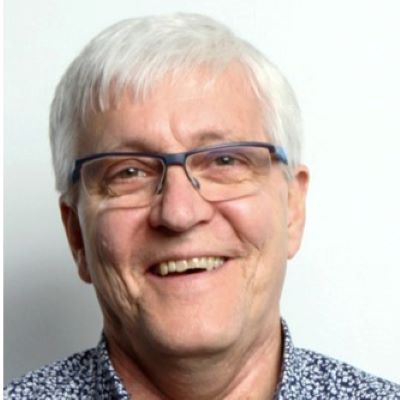Mineral Exploration with Pierre Leveille
As demand for metals increases and production decreases, what does the future hold for the mining industry? Pierre Leveille shares his experience and outlook into what to expect from mineral exploration!
Listen to us On
About the Episode
LifeBlood: We talked about mineral exploration, the factors which delay and sidetrack new mines, why demand is increasing and production is decreasing, and what the future could hold with Pierre Leveille, President and CEO of Deep South Resources.
Listen to learn why focusing on happiness over money will bring greater long-term returns!
For the Difference Making Tip, scan ahead to 19:33!
You can learn more about Pierre at DeepSouthResources.com, Facebook, Twitter, YouTube and LinkedIn.
Thanks, as always for listening! If you got some value and enjoyed the show, please leave us a review wherever you listen and subscribe as well.
You can learn more about us at MoneyAlignmentAcademy.com, Twitter, LinkedIn, Instagram, Pinterest, YouTube and Facebook or you’d like to be a guest on the show, contact George at [email protected].

George Grombacher
Lifeblood Host

Pierre Leveille
Guest
Episode Transcript
Come on
all your life blood. This is George G. And the time is right. welcome today’s guest strong and powerful peer Lavie Pierre, are you ready to do this?
Pierre Leveille 0:20
Yes, absolutely.
george grombacher 0:22
All right, let’s let’s, let’s go. Pierre is the President and CEO of Deep South resources, they are a mineral exploration, exploration and development company focused on major mineral deposits in Africa, excited to have you on. Peter, tell us a little bit about your personal life some more about your work and why you do what you do.
Pierre Leveille 0:43
Very good. So you want me to tell you all of this now,
george grombacher 0:47
all of it, all of it right now.
Pierre Leveille 0:53
I, my background is finance. And I started as a stockbroker, and an investment banker in a large investment bank in Canada, but my main task was to raise funds for exploration projects in the northern part of Canada, mainly Quebec, and Ontario. And after doing this for a certain number of years, I have a pretty good feel for, you know, for geology, even if I’m not a geologist, and I add the you know, that that time, I decided to take over the management of a company, where with my shareholders, we were having a pretty large ownership. And we started developing projects in Africa, the that was the goal. Because of my work, as a stockbroker, I was having a pretty interesting network of South African investors, most of them had made quite a lot of money in the mining sector. So we use that network to, to look at projects. And the idea was to find, in fact, we have always been quite what we call elephant enters in the sense that we were looking for potential large deposits. In commodities, like, you know, originally it was diamond. But we were looking also for gold and copper. And so true, different ventures I’ve been involved in, in diamonds in diamond mining. And in cup, or expiration. Lastly, the place where we have been most active is Namibia, which is in the southern part of Africa and north of northwest of South Africa. It’s, it’s considered as one of the best country to invest in Africa, it’s pretty different than the rest of Africa. It’s, it’s very stable, it’s, of course, like, like everywhere in Africa, the economy needs a lot of input. But it’s a very stable country, people are very, it’s life is easy in that country. It’s it’s very interesting country. And they also protect quite a lot their environment. If you go and look at pictures of that country, you will see that it’s completely magnificent. They have the isn us in the world. They are up to over 1000 feet, the very large natural park in the north part of the country with a natural reserve with a lot of animals. So it’s a it’s a very nice country. So we’re involved in that country since 25 years, I, with my partners in Namibia, we’ve developed a serious network in Namibia, of local entrepreneurs and politicians and I lived in Namibia for a period of life of my life, my family came with me my children’s have started school in Namibia. So it’s, it’s like my second home. And so since a certain number of years, with the child resources, we are involved in the very large deposit, a copper deposit, which is pretty challenging. And the in the sense that it’s a very large deposit large tonnage, but it’s low grade. And we talk about near 1 billion tonne of ore at point 31% copper, the just give you an idea the average copper production in the world at the moment is around point 50. So means that there are some that are under point 50. But at point 31, we’re really at the bottom of it. So the recent work, the idea was to find the right extraction technology to extract the metal at a cheap capital investment, low capital investment and low operation cost, which we did we’re very happy to say that we found that that technology which is called bioheat leaching and we also add the goal To see if we can improve the grades and that’s what we were showing up to mid June when we had a setback. We were, you know, following finding quite a lot of a lot of extension with grades between point 50% and 1%. So we were showing that we were able to improve the grade of that deposit so it was going extremely well until the Minister of mines decided to not renew our license that has created a collapse because serious difficulties at the time because it’s deep south resources is listed on TSX Venture and also on OTC QB in the United States. So it’s we had a setback in the in the stock price.
But we had quite a large number of options in front of us we are in court at the moment with the Ministry we challenged the we have asked the court to review the decision of the minister which they’re busy doing at the moment and we do quite a lot of lobbying because we’re involved in the country since a long time are your shareholders also we have large shareholder ship with Namibian peoples so we we do a lot of lobbying and what we see now is that there’s a good chance we’re pretty confident we will turn that situation around because the decision of the ministry was was we think the minister has not been well informed at some point in time before pulling out the license was saying that he had been informed nothing was happening on our on our on our project so it’s which is completely wrong we’ve we’ve we’ve spent even more money than what we have proposed to do because that’s the way it works every two years you renew the license you propose a program with a budget and we have always been over budget so we’re pretty confident that we will turn that situation around in the meantime we we also look at other projects you know to acquire in the company some in the same area you know, Zambia, Namibia Botswana we’ve looked also in South America so we will get a new project so we will be you know, we will be on a better most better solid base pretty soon. Now the reason why I do that is just there’s a couple of reasons The first one is just that I like I really like the challenge of finding mineral deposits it’s very challenging but it’s very very interesting and you will learn about a lot about the you know the history of the planet so it’s it’s pretty interesting The second reason is that I love Africa mainly the southern part of Africa I’ve spent a lot of my time in in Namibia of course but also in South Africa I have large networks there and I just like working there it’s an deterred point is that I would like at one point in my life to achieve that we have a mind that is an operation whether it’s us that bring it to operation or somebody else that has bought it from us you know before putting into the operation I would like to give a certain possibility to people in Namibia to to have new jobs and create something something interesting out of there so the the social side for me is very important. Yeah, that’s so that’s that’s my story.
george grombacher 8:37
Excellent. I appreciate you sharing it and you know as if it wasn’t hard enough to figure out where the metal is and then to get the metal out of the ground and then to figure out this new technology this bioheat leaching to get the metal out of the existing rocks it’s stuck in then the government does something and makes your life even harder. So but that’s kind of a day in the life of the mining business.
Pierre Leveille 9:03
Yeah, that’s it that’s uh, you know, we’re not the first company having that kind of situation we see that in many countries in the world with larger smaller companies that said there’s a lot of social impact today is very very important than the society is very involved in the decision of the companies and the ministries and so on and sometime it creates problem of that nature, you know, perceptions are, are wrong. So we have to be very efficient on communication and communicate what we do and how we do it. And so it’s, but that’s the reality of where we are in 2021. And that’s probably okay because for for many years, mining companies were just a complete nightmare nightmare for Environment a complete nightmare for, you know, social, a social impact. They were not paying employees very well. So I think it’s just a shakeout. Now to tell the industry that we have to realign ourselves and be a better corporate citizen.
george grombacher 10:08
Amen. Is, and I this is perhaps not a question that you’re able to answer are willing and that’s totally fine. Are. Are you thinking that the reasoning that the ministry decided not to renew your license is because of a sort of a pushback from the people over the environmental impact? Or is it something else?
Pierre Leveille 10:33
No, it’s something else environmental impact in, in our case was well controlled, we have all the certificates, we were in need of to do what we had to do so and we were starting in the vaster environmental impact study. So it has nothing to do with the environment side. Now effectively, what will happen is that the minister since two years have decided as decided to clean up the expression license map in the sense that there’s a lot of, I would say, over 50% of the expression licenses that are not active, people are not spending money on it or not developing it. And it’s normal people are not all experienced the people that are
applying for the hope, the hope to sell it back from somebody else to make money out of it, which is correct, it’s kind of speculation, but the ministry wanted to clean that out a little bit. So it means that there’s a lot of expiration licenses that are on the stake at the moment and revised and, and sadly, there was a couple of projects that were moving well that I’ve been put in to these into that bag of concession or licenses that have to be not renewed, let’s call it like this. And so we believe we’re pretty certain the minister has not been well informed on what was happening on our project. And what has not been outfall in the past two years, to have a better communication over what we’re doing is the COVID. That was creating tons of problems. And so we think we can we can redress that situation. And we think the minister has been extremely poorly informed. And that’s what we see more and more you know, it’s it’s easy to, to see that so we think it can be revert and revert to then that we will be fine.
george grombacher 12:33
Got it. I appreciate that. So you’re obviously thinking about the space 24 hours a day, seven days a week or 23 and six or something like that a lot anyway. And from the outside looking in, from my perspective, it seems like we should be very bullish on on companies like yours who have experience because of the need and desire of the world economy for more metals. You believe that to be a correct statement?
Pierre Leveille 13:04
Yes, that that? That’s really correct. Yes, we have a setback at the moment. But we are an experienced group of people with very highly skilled and technical people also. So we will turn that situation around one way or the other, we will get other projects we will continue to the lab. So because of that setback at the moment, we’re extremely cheap. And yes, when you look at the you know the market in front of us if you just take cover and I will take talk more about this one because I know it better. But if you look at electrification of transport, you need in an electric vehicle, you need four times more copper than in a internal combustion vehicle, which is which is why a lot of copper, you need also charging station, you need a lot of infrastructure around that. But what if that’s only for the electrification vehicle, but now with all of the the communications today that has become because more more people are working from home and we all using more, these zooms skypes and of the world, the there’s a huge need for data center and data center are living on power, they’re hungry for power, it’s and when you talk power, you need copper for wiring. That’s the same for the you know, all the alternative currencies like bitcoins and others they need what they call the farming been bitcoins and that leads also huge data center and huge servers server room that are hungry for power. So they are looking for two things power and wiring. So if you take all of this together and G phi which is coming will need a lot of new towers and investments are You’re going to be up to $500 billion, and that will need a lot of copper and guess what copper, at the moment the production is going down, the demand is going up, the production is going down. So there there there is a lack of copper at the moment. And that will stay for probably 10 years because it takes time to create and build new mines. And there’s not enough new mines that will come in production over the next five years to out balance that shortage. So it’s we need we would like it or not, we need to explore to find these deposits. It’s very important because otherwise, there’s a there’s a big part of the of our, let’s say transportation and communication that will be affected. It’s and we can say the same for nickel, zinc, and you know, a lot of other metals, but but copper is really at the forefront of that.
george grombacher 16:00
So if I want my iPhone, and my Tesla and my Bitcoin to work, we need to get the metal out of the ground.
Pierre Leveille 16:07
Absolutely. Without it, we cannot do it.
george grombacher 16:13
Why? Why is there a Why has production been going down.
Pierre Leveille 16:21
Because the large mines that are producing most of the copper in the world, the grades are going down slowly they’re going there, they’re arriving near the end of life. So and of life of mines in general means less production. And in the past, at least 15 years, the exploration expenditure for copper were pretty low, because the price of copper was low. And when the price is low, companies are tending to not invest more so much in exploration, which is what we see today. It’s it’s, it’s not the way to look at it. Because nobody 15 years ago was able to predict that there would be a so massive shortage, or it’s so massive demand coming. But in the past five years, or let’s say since the since 10 years, we have seen that more and more coming. And then the by the time you react start exploring and there’s more money than then ever that is putting in put it in expression at the moment for copper at least. And what we see is that the it takes time, it could take up to 2025 years between the time you find a deposit that it gets in production. So but but the year the time is counted. So it’s it’s very important to so you will see company reopening old mines, what it will push also, which is not bad, it will force to two, it will force to find a it will force to find ways of recalibrating customer, you know the metals, that will be more and more important.
george grombacher 18:07
So finding, okay, so for lack of a better term recycling metals that are just sitting around somewhere extremely important. Yeah. And then going and going back to historic minds that maybe for lack of technology, or just lack of will or reasons, but maybe now because there’s such a demand, there’s an appetite to go back to those.
Pierre Leveille 18:33
Yes, but there will be a lot of failures into that for many reasons. But the ones that will be in that will resume mining it’s just going to be a short term temporary solution. No it’s it’s not going to be you need to find deposit that will that will operate 50 years you know at least it’s 25 to 50 years at least and an old mind that you do in production in general it’s less than 10 years.
george grombacher 19:03
Got it. Oh there we go. Up here. People are ready for your difference making tip What do you have for them
Pierre Leveille 19:14
You mean an investment or
george grombacher 19:17
whatever you’re into, you’ve got so much life experience with raising a family and doing business all over the world and having your kids go to school in Africa so a tip on copper or whatever you’re into.
Pierre Leveille 19:34
But there’s two things I like to see and I was telling my children many times and I always said you know don’t focus on what will bring you specifically money don’t think of Getting Rich. Think of doing what you what you like, what you feel your your your your your, you know you have been born to do so use your most you skills, do what you like, do what you wet well, and good things will happen to you. And I can see them grow in their life. And I can tell you that this is what happens. And sometimes you have setback like I had recently. But if we do things properly, if we do things that we like, and we liked that project, we were very passionate about that project, not only me, all my team, and if we do things properly, if we do things correctly, good things will happen. And we will probably get the project back had to go forward or we will find another big project that will be the launch of a new era. So that’s my most important tip in life. Do what you like, do it with your best scale and do it well and good things will happen.
george grombacher 20:49
Well, I think that that is great stuff that definitely gets come up. Come on. Here. Thank you so much for coming on. Where can people learn more about you? And Deep South resources and how can they engage?
Pierre Leveille 21:03
Thank you. I was happy to be with you to today.
george grombacher 21:06
Damn, tell us the websites and where where people can connect and find you.
Pierre Leveille 21:13
The it’s Deep South resources.com. So pretty simple.
george grombacher 21:18
Perfect. Well, if you enjoyed this as much as I did show up here your appreciation and share today’s show with a friend who also appreciate good ideas, go to deep south resources, calm and learn all about what they’re working on and track their progress.
Pierre Leveille 21:32
Thanks. Thanks, have a nice day.
george grombacher 21:36
And until next time, keep fighting the good fight. We’re all in this together.
Transcribed by https://otter.ai
More Episodes
Cold Cases with Alex Baber
Cold Cases with Alex Baber What can be done to solve the over 250,000 cold cases? Alex Baber talks about what his organization is doing to put a dent in the problem and get justice for victims! About the EpisodeLifeBlood: We talked about cold cases, how there are over...
Healthy Brain Food with Karen Mayo
Healthy Brain Food with Karen Mayo Is the food you eat healthy brain food, or the opposite? Karen Mayo talks about how to know and what to do once you know which foods are right for your body! About the EpisodeLifeBlood: We talked about healthy brain food, what our...
How NFTs Work with Rug Thomas
How NFTs Work with Rug Thomas You've heard of NFTs, but they don't quite make sense and you don't quite understand how NFTs work. Rug Thomas shares his expertise into their practical applications! About the EpisodeLifeBlood: We talked about now NFTs work, practical...
What is Public Relations with Evie Smith Hatmaker
What is Public Relations with Evie Smith Hatmaker What is public relations and why should an organization do it? Evie Smith Hatmaker shares her perspective on the role it plays and the impact it can have! About the EpisodeLifeBlood: We talked about is public...
You Can Do Anything with Dr. Doug Brackmann
You Can Do Anything with Dr. Doug Brackmann Do you get bored by doing the same things day after day, and do you frequently experience "shiny object syndrome?" Dr. Doug Brackmann talks about how you may have a genetic condition affecting less than 10% of the...
Know Your Numbers with Jack Tompkins
Know Your Numbers with Jack Tompkins How well do you know your numbers and track your activity? Jack Tompkins talks about the power of doing it and how to make it happen! About the Episode LifeBlood: We talked about why you ought to know your numbers, why you don’t...
Financial Wellness with Scott Spann
Financial Wellness with Scott Spann According to a recent survey, over half of American employees are financially illiterate, and 80% would like financial education as an employee benefit. Scott Spann talks about financial wellness and how companies can help their...
Graphic Design with Ian Bower
Graphic Design with Ian Bower We tend to commoditize graphic design and think about it in silos. Ian Bower talks about the risks associated with that approach and how to become better consumers of this essential component of our businesses!About the EpisodeLifeBlood...
Financial Compliance Services with Todd Cipperman
Financial Compliance Services with Todd Cipperman With new financial products like crypto assets and blockchain coming online all the time, how do they interact with regulatory compliance? Todd Cipperman breaks down the compliance landscape and talks about how to get...
Join the show.
Interested in being on the show? Tell me a little bit more about you and what you’d like to talk about!








